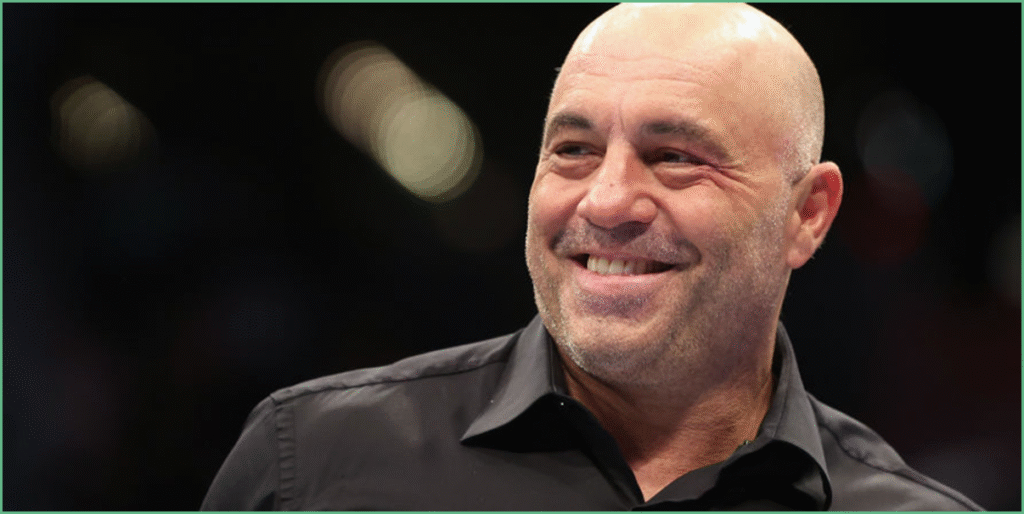Joe Rogan has been talking openly about an ongoing curiosity toward faith, admitting he spends time in church and listens closely to what believers say. This piece tracks his recent comments about why church life appeals to him, how he reacts to critics of Christianity, and moments from his podcast conversations that reveal a softer, questioning side.
Rogan described his church visits as more than ritual; they’re a chance to be around people who are actively trying to improve themselves. He said the gatherings include reading and unpacking Bible passages, and he listens because he thinks there’s meaning worth examining. That everyday curiosity has him trading the old atheist posture for something more inquisitive and engaged.
When a guest noted how religion can anchor someone through hard times, Rogan responded plainly: “If you really do believe that, it definitely will help you,” showing an appreciation for faith’s practical effects. He didn’t convert that appreciation into proselytizing, but he acknowledged the force of genuine belief. That kind of pragmatic respect has marked recent episodes of his show.
Another guest, Konstantin Kisin, brought his own shift into the conversation with the line “I haven’t got there, but I have started going to church every now and again,” which sparked a light, honest exchange. Rogan asked, “Do you enjoy it?” and Kisin answered, “I love it,” while Rogan admitted, “I do too.” Those short back-and-forths reveal how simple companionship and shared intention can shape a person’s spiritual curiosity.
Rogan framed his church experience as a mix of study and community, emphasizing the value of people striving to be better. He said, “It’s a bunch of people that are going to try to make their lives better. They’re trying to be a better person.” That plain observation highlights his shift from critique to observation: he’s watching the way belief shapes behavior rather than just arguing about doctrine.
He pushed back against the easy dismissal of Christianity as mere fantasy from some secular critics, pointing out that understanding the faith demands historical context, translation issues, and the gap between oral stories and written texts. Rogan admitted, “I think there’s something to what they’re saying,” which keeps his tone balanced and curious rather than combative. He seems willing to hold two thoughts at once—skepticism about literalism and respect for the lived effects of faith.
On the topic of evidence, Rogan mentioned ways modern findings sometimes intersect with ancient narratives, noting that archaeology and science occasionally bring new questions to old stories. He treated these intersections as conversation starters, not final proofs, and used them to explain why he pays attention to religious communities. That approach turns scripture into a window on past societies and present needs.
The discussion also wandered into media and culture, where Rogan and his guests talked about protest reporting and the oddities of public argument. Rogan pointed to a video of a man doing interviews at a left-wing No Kings protest and laughed at a moment that captured cognitive dissonance: ‘It’s almost like everybody is under a spell.’ That quip landed as social observation, not a theological verdict.
Episode anecdotes kept circling back to the simple pleasures Rogan finds in church life: conversation, mutual accountability, and a common aim toward self-improvement. He first mentioned regular attendance earlier in the year and has since described the gatherings in similar terms, noting the steady, unflashy work of people trying to get better. “It’s actually very nice; they’re all just trying to be better people.”
Rogan’s tone across these exchanges is less about settling an argument and more about staying present to what others find helpful. He listens to believers’ explanations, reflects on historical and scientific angles, and shares moments of amusement or surprise when public debates expose contradictions. The result is a public figure exploring faith with curiosity, not certainty, and inviting listeners into the same open-ended conversation.
